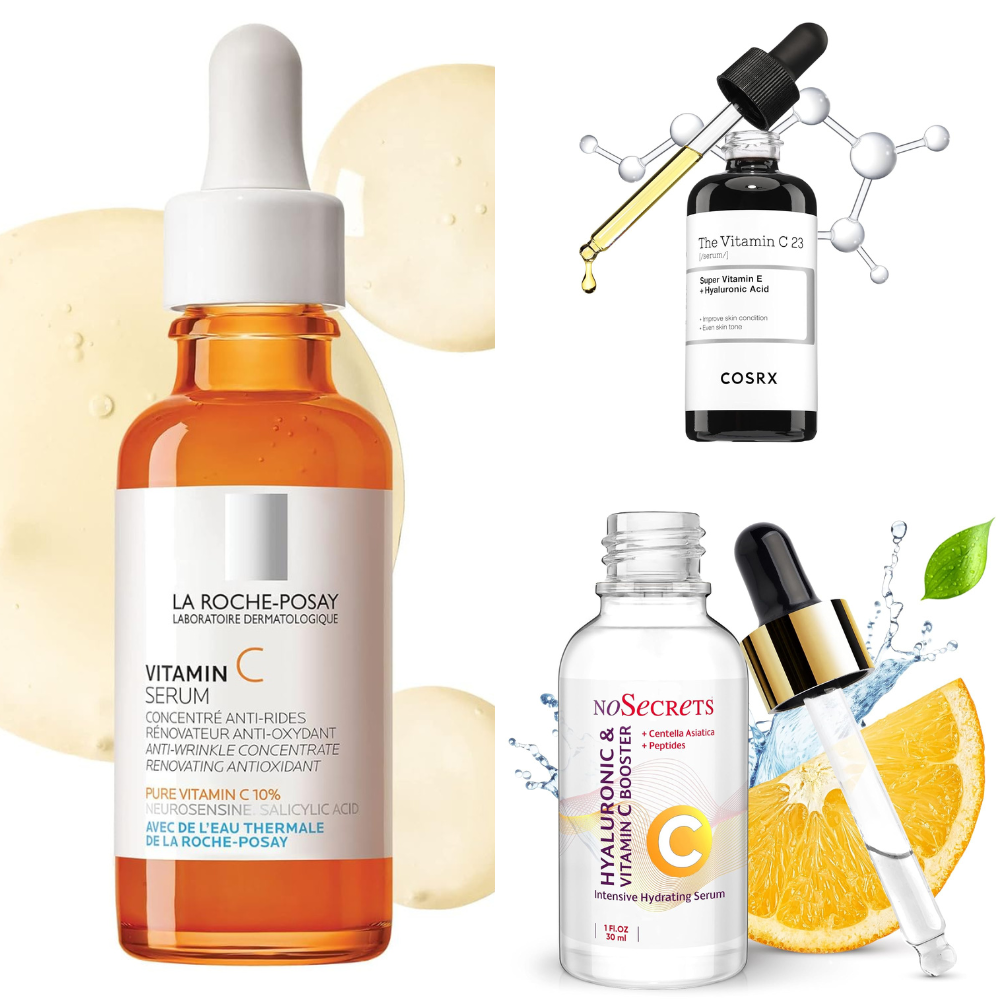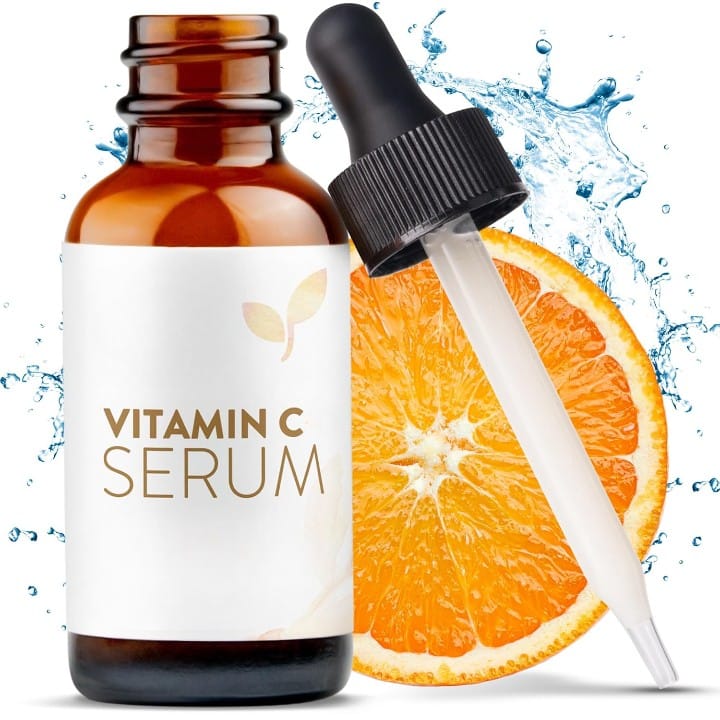Key Takeaways:
- Vitamin C serum can cause side effects such as skin irritation, especially in sensitive skin types.
- Understanding the proper use and concentration of vitamin C serums is crucial for minimizing potential adverse reactions.
- A patch test is recommended before incorporating a new vitamin C serum into your skincare routine.
Vitamin C serums have become a staple in skincare routines worldwide, lauded for their ability to promote healthy skin by promoting collagen production, reducing hyperpigmentation, and protecting against sun damage. However, as with any active ingredient, there are potential side effects associated with its use. This article delves into the side effects of vitamin C serum, providing a professional and informative perspective on what users may experience and how to mitigate these effects.
Recognizing Common Side Effects
The most common side effects of vitamin C serum include skin irritation and sensitivity. When applied topically, the active form of vitamin C, known as L-ascorbic acid, can sometimes lead to redness, itching, or stinging, particularly in those with sensitive skin. High concentrations of this potent antioxidant can exacerbate these reactions, making it essential to choose a serum with an appropriate concentration for your skin type.
Sensitive Skin and Vitamin C
Individuals with sensitive skin may be more prone to experiencing side effects from vitamin C serums. The acidic nature of L-ascorbic acid can disrupt the skin barrier, leading to increased sensitivity and irritation. For those with delicate skin, serums with a lower concentration of vitamin C or those formulated with magnesium ascorbyl phosphate, a less irritating derivative, may be more suitable.
The Role of Concentration
The concentration of vitamin C in serums can vary widely, with some products containing as much as 20% or more of the active ingredient. While higher concentrations may offer more potent health benefits, they also increase the risk of skin irritation. A systematic review of the action and clinical applications of topical vitamin C suggests that a lower concentration may be sufficient for many skin types, reducing the likelihood of adverse reactions.
Combining Vitamin C with Other Ingredients
Combining vitamin C with other active ingredients like ferulic acid, vitamin E, and hyaluronic acid can enhance its efficacy and stability. However, it's essential to be cautious when combining vitamin C with other products in your skincare routine. Some combinations, especially with other acids or retinoids, can lead to increased skin irritation or compromise the integrity of vitamin C.
Allergic Reactions and Patch Testing
Allergic reactions to vitamin C serums, though rare, can occur. Symptoms may include severe itching, rash, or hives. To prevent allergic reactions, it's recommended to perform a patch test before fully integrating a new vitamin C serum into your skincare routine. This involves applying a small amount of the product to a discreet area of the skin and waiting 24 hours to observe any adverse reactions.
Vitamin C Serum and the PH Level Balance
The pH level of skincare products is a critical factor that can influence their effectiveness and potential side effects. Vitamin C serums, particularly those containing L-ascorbic acid, have an acidic pH that is necessary for the serum to penetrate the skin barrier. However, if the pH level is too low, it can lead to irritation and disrupt the skin's natural acid mantle. According to the Indian Dermatology Online Journal, an ideal pH for vitamin C serums should range between 2.0 and 3.5 to ensure efficacy while minimizing irritation.
Maintaining a balanced pH level in vitamin C serums is essential for avoiding adverse reactions. Many serums are formulated to be close to the skin's natural pH, which typically lies around 4.7 to 5.75. A serum that is too alkaline may not be as effective in promoting cell turnover and reducing hyperpigmentation. On the other hand, a highly acidic serum could damage skin cells and cause inflammation. Consumers should look for serums with a pH that supports skin health while delivering the anti-inflammatory properties of vitamin C.
Vitamin C Serum and Anti-Aging Benefits

The quest for a youthful complexion often leads individuals to incorporate vitamin C serum into their skin care routine due to its anti-aging properties. L ascorbic acid, a potent form of vitamin C, is renowned for stimulating collagen production, which is essential for maintaining skin elasticity and firmness. As a result, consistent use of vitamin C serum can help diminish the appearance of fine lines and wrinkles, contributing to a more youthful and radiant skin texture. However, it's important to note that while these benefits are significant, overuse or improper application can lead to vitamin C serum side effects, such as irritation or redness.
In addition to its collagen-boosting capabilities, vitamin C serum also possesses anti-inflammatory properties that can soothe the skin. This makes it a valuable addition to any anti-aging skincare product arsenal. When individuals apply vitamin C serum topically, it can also protect the skin from oxidative stress caused by environmental factors like pollution and UV radiation, which are known to accelerate the aging process. Nevertheless, users must be cautious and follow product instructions carefully to avoid potential side effects that can counteract the anti-aging benefits of vitamin C products.
Addressing Hyperpigmentation with Vitamin C Serum
Hyperpigmentation, a common skin concern characterized by dark spots and uneven skin tone, can be effectively targeted with the use of vitamin C serum. The serum's ability to helps fade hyperpigmentation is attributed to its role as a natural brightening agent, which works by inhibiting the enzyme tyrosinase, responsible for melanin production. Regular topical application of vitamin C serum can gradually reduce hyperpigmentation, leading to a more even complexion. However, users should be aware that while vitamin C is effective in this regard, it can also cause side effects such as mild stinging or redness, particularly in those with sensitive skin.
For those looking to incorporate a vitamin C serum into their skincare routine to combat hyperpigmentation, it is advisable to start with a lower concentration and gradually increase as the skin builds tolerance. This approach minimizes the risk of experiencing vitamin C serum side effects. Additionally, pairing vitamin C serum with other skin-brightening agents like sunscreen can enhance its efficacy in reducing hyperpigmentation. It is crucial to remember that while vitamin C is a powerful skincare product, its benefits must be balanced with caution to prevent irritation and ensure optimal results.
The Evolution of Vitamin C Serum Forms in Cosmetic Dermatology
Cosmetic dermatology has seen a significant evolution in the forms of vitamin C used in serums. Initially, L-ascorbic acid was the predominant form due to its potent anti-aging and skin-brightening capabilities. However, its instability and potential for irritation led to the development of different forms of vitamin C, such as magnesium ascorbyl phosphate and tetrahexyldecyl ascorbate. These forms are more stable and less irritating, making them suitable for a wider range of skin types.
The advancement in serum form has allowed for more specialized skincare products that cater to specific concerns. For instance, serums with magnesium ascorbyl phosphate are known for their hydrating and anti-inflammatory properties, which help fade hyperpigmentation and soothe the skin. A randomized controlled trial might reveal that these newer forms of vitamin C are not only gentler on the skin but also offer a sustained release of the active ingredient, enhancing its effectiveness in repairing damaged cells and promoting a more even skin tone.
Vitamin C Serum and Sun Sensitivity
While vitamin C is known for its protective effects against UV rays, some individuals may experience increased sun sensitivity when using vitamin C serums. This is due to the serum's action on inhibiting melanin production, the pigment responsible for skin color. To counteract this effect, it's crucial to apply sunscreen daily when using vitamin C in your skincare routine.
The Impact on Skin Tone and Dark Spots
Vitamin C serums are often used to help fade hyperpigmentation and even out skin tone. However, in some cases, improper use or too high a concentration can lead to uneven skin color or worsening of dark spots. It's important to follow the recommended usage instructions and to combine vitamin C with sunscreen to prevent further sun damage.
Vitamin C Serum Formulations
The cosmetic industry offers vitamin C in various serum forms, each with different stability profiles and pH levels. L-ascorbic acid requires a low pH to remain stable, which can irritate the skin. Other forms, such as ascorbyl palmitate and sodium ascorbyl phosphate, are more stable at higher pH levels and may be less irritating, making them suitable alternatives for sensitive skin.


Can vitamin C serum cause skin irritation?
Vitamin C serum, known for its numerous benefits, can occasionally lead to skin irritation, especially for individuals with sensitive skin or when used in high concentrations. It is important to be mindful of these factors when incorporating Vitamin C serum into your skincare routine.
Should I perform a patch test before using vitamin C serum?
Yes, performing a patch test is recommended to ensure you do not have an allergic reaction to the serum.
Can I combine vitamin C serum with other skincare products?
Vitamin C can be combined with other skincare products, but caution should be taken as certain combinations can increase skin irritation. It's best to consult with a skincare professional before mixing active ingredients.
Can oily skin use vitamin C serum?
Yes, oily skin can use vitamin C serum. It works for all skin types and is especially beneficial for oily skin. It can help maintain the balance of sebum production and hydrate the skin without leaving a greasy film. It also strengthens the skin's barrier and speeds up cell renewal.
Which vitamin C serum is best for beginners?
The search results don't specify which vitamin C serum is best for beginners. However, when selecting a vitamin C serum for oily skin, it's recommended to opt for a lightweight and oil-free formula. Look for serums that contain L-ascorbic acid.
Is vitamin C OK for dark skin?
Yes, Vitamin C is okay for dark skin. As a powerful antioxidant, it can help brighten and even out skin tone, reducing the appearance of hyperpigmentation or dark spots. It works by inhibiting an enzyme called tyrosinase, which causes skin discoloration. Vitamin C is also used as a treatment modality in the depigmentation of hyperpigmented spots on the skin.
Does vitamin C remove tan?
Yes, Vitamin C can help in removing tan. Vitamin C works by inhibiting the tyrosinase enzyme, thereby reducing melanin production which is responsible for skin tanning. It can also reduce the appearance of dark spots and hyperpigmentation caused by sun exposure. Topical application in the form of serums can be beneficial for tanned skin.
Does vitamin C remove pimples?
The search results do not directly address whether vitamin C removes pimples. However, vitamin C can benefit oily skin, and since excess oil can contribute to the formation of pimples, it could potentially aid in reducing them.
Can vitamin C remove pimple marks?
Vitamin C offers numerous benefits for the skin, including brightening and reducing dark spots. However, it cannot eliminate pimple marks, which are caused by an overproduction of melanin during the healing process. Consulting a dermatologist is crucial for effective treatment options.

Vitamin C serums offer many benefits for skin health, from reducing hyperpigmentation to protecting against the harmful effects of sun exposure. However, they can also cause side effects such as skin irritation, sensitivity, and allergic reactions. By understanding the proper use, concentration, and combination with other skincare products, users can minimize these risks. Always perform a patch test before adding a new vitamin C serum to your skincare routine, and consult a dermatologist if you experience adverse reactions.













